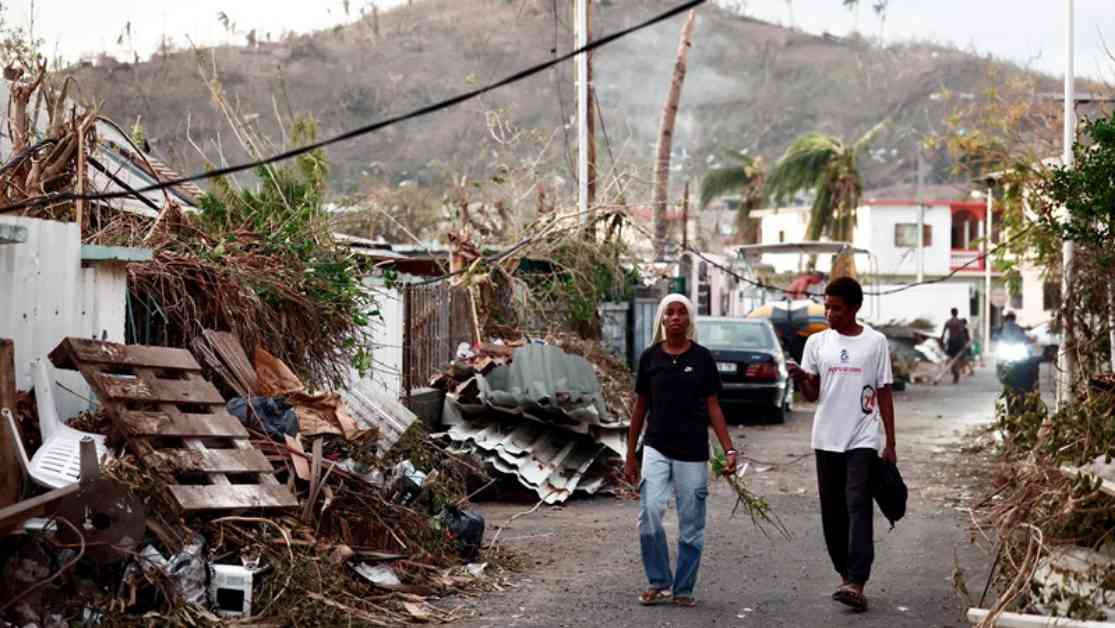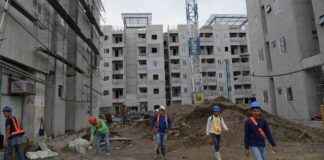France’s Neglect of Climate Threat to Mayotte: Cyclone Chido’s Impact
The aftermath of Cyclone Chido’s devastating strike on Mayotte, a French overseas department, has left locals and experts questioning France’s preparedness for the growing threat of extreme weather events. The cyclone unleashed high winds, heavy rain, and massive waves, resulting in a death toll that could potentially soar from 31 to over 1,000 on the two islands of Mayotte, where many residents, including tens of thousands of undocumented migrants, reside in vulnerable “banga” slums with tin roofs.
France’s Interior Minister, Bruno Retailleau, described Mayotte as “totally devastated,” with around 70% of the population severely affected. The French Red Cross echoed this sentiment, calling the damage “unimaginable.” The cyclone, deemed the strongest in at least 90 years to hit Mayotte, was fueled by abnormally warm waters in the Indian Ocean, according to the Météo-France weather service.
France’s Response and Criticism
Despite the government’s claims of adequate preparation and response, locals and experts have criticized France for failing to adapt to climate change and adequately protect Mayotte. Reports from Climate Home News highlighted the fragility of the island’s infrastructure, with buildings ill-equipped to withstand such powerful storms.
Challenges and Critiques
The disparity in resources and attention between mainland France and its overseas territories like Mayotte has raised concerns about the country’s governance and allocation of climate funds. A lack of expertise at the local level has hindered Mayotte’s ability to access support for climate adaptation, leaving vulnerable communities at risk.
Calls for Action and Future Concerns
Young climate activist Samira Ben Ali, hailing from Mayotte, criticized the French government for neglecting warnings from local activists and politicians and failing to fulfill promises of financial support for adaptation efforts on the islands. The devastation caused by Cyclone Chido underscores the urgent need for improved early warning systems and infrastructure to protect vulnerable populations from future disasters.
As Mayotte grapples with the aftermath of Cyclone Chido, the response of the French government to reconstruction efforts will be crucial in preventing further discontent and potential calls for independence. The fate of Mayotte’s residents, particularly the most marginalized, hinges on swift and effective action to rebuild and safeguard against future climate threats.














